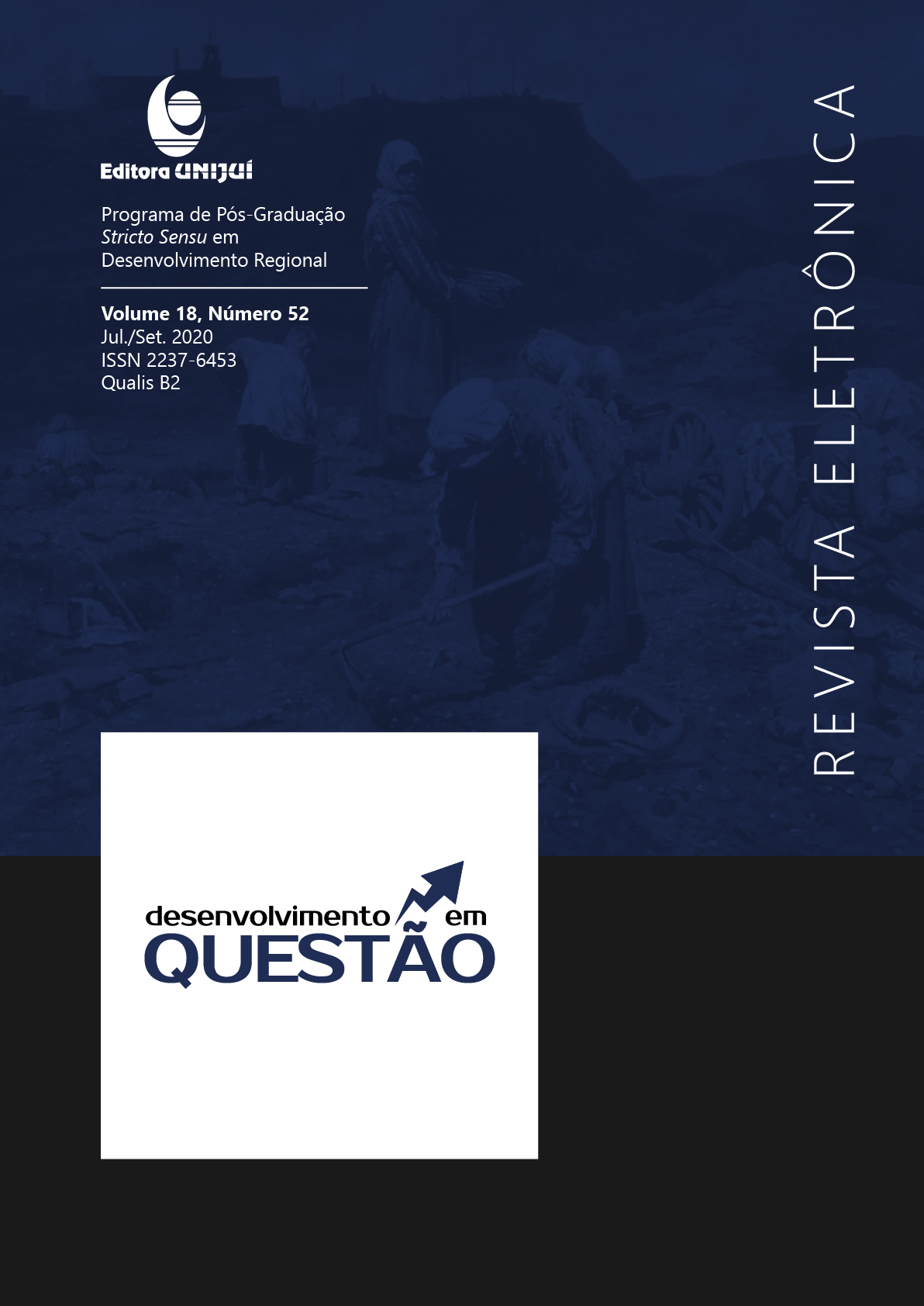TERRITORIAL HERITAGE: THEORETICAL APPROACHES AND METHODOLOGICAL INDICATIVES FOR TERRITORIAL STUDIES
DOI:
https://doi.org/10.21527/2237-6453.2020.52.12-32Keywords:
Territory. Territorial Heritage. Patrimonialization. Italian Territorialist School. Territorial Development.Abstract
Territorial heritage is conceived here as the set of assets and resources, both material and immaterial, that have accumulated throughout history in a given territory, resulting from historical processes of socioeconomic and cultural construction and reconstruction, in relation to the environmental environment. It includes both elements inherited from the distant past, and those that constantly overlap the territory. Despite its importance, the topic is still little studied in Brazil and Latin America. In order to amplify its dissemination to researchers and students and instigate new investigations, the available literature was used, explaining the main theoretical approaches on heritage, territorial heritage and patrimonialization, including, also, critical views. Additionally, suggestions for questions that may motivate further investigations are presented. We managed to access dozens of publications, and the main theoretical contributions come from authors who are affiliated with the line of thought of the Italian Territorialist School. Based on the concepts of the referential authors, it can be concluded that taking territorial heritage as a starting point and guideline in the planning or elaboration of localized development strategies is to follow the path to overcome sectoral analyzes and move towards a return to the territory, or that is, we adopt a territorial approach to development.
Downloads
Published
How to Cite
Issue
Section
License
By publishing in Revista Desenvolvimento em Questão, authors agree to the following terms:
All works are published under the Creative Commons Attribution 4.0 International License (CC BY 4.0), which allows:
Sharing — to copy and redistribute the material in any medium or format;
Adaptation — to remix, transform, and build upon the material for any purpose, even commercially.
These permissions are irrevocable, provided that the following terms are respected:
Attribution — authors must be properly credited, a link to the license must be provided, and any changes made must be indicated.
No additional restrictions — no legal or technological measures may be applied that legally restrict others from doing anything the license permits.
Notices:
The license does not apply to elements that are in the public domain or covered by legal exceptions.
The license does not grant all necessary rights for specific uses (e.g., image rights, privacy, or moral rights).
The journal is not responsible for the opinions expressed in the articles, which are the sole responsibility of the authors. The Editor, with the support of the Editorial Board, reserves the right to suggest or request modifications when necessary.
Only original scientific articles presenting research results of interest that have not been previously published or simultaneously submitted to another journal with the same purpose will be accepted.
Mentions of trademarks or specific products are intended solely for identification purposes and do not imply any promotional relationship by the authors or the journal.
License Agreement (for articles published from 2025 onward): Authors retain the copyright to their article and grant Revista Desenvolvimento em Questão the right of first publication.











